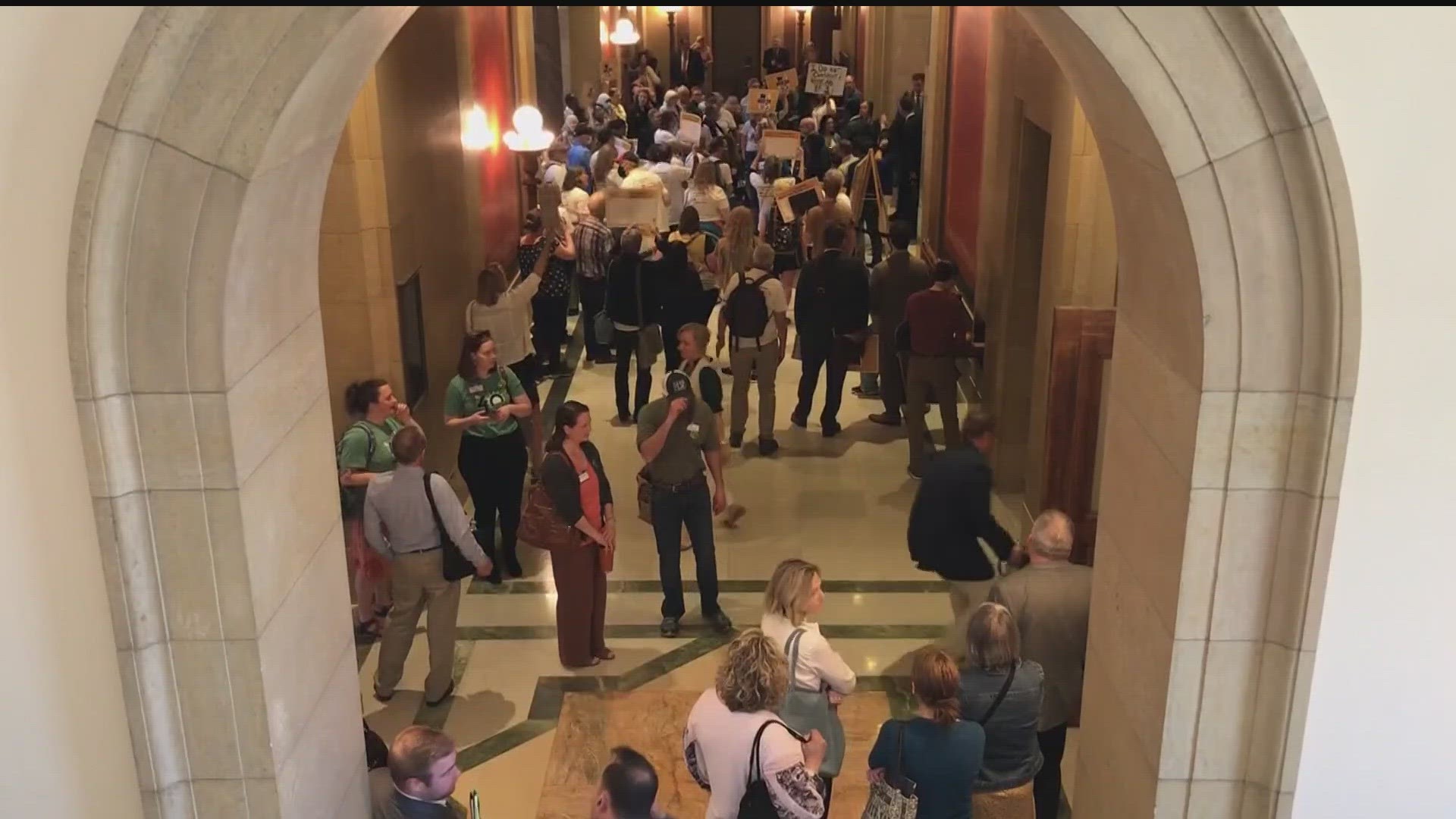ST PAUL, Minn. — A package of election reforms passed the Minnesota House Thursday night, after an intense, six-hour debate between the DFL majority and GOP minority.
The "Democracy for All" bill would create an automatic voter registration system, allow 16- and 17-year-old citizens to pre-register to vote, and add more transparency to campaign finance rules.
The bill was numbered House File 3, a reflection of how important the reforms are to House Democrats.
"This is a bill that says we believe in the power of the people of all races, of all backgrounds, of all generations, of all zip codes," Rep. Emma Greenman, the lead author, told colleagues during Thursday's debate.
"It’s a bill that comes at a moment in our history when we see two very different visions for the future of American self-governance."
Greenman's bill provides that when people interact with state government, by getting driver's licenses or signing up for state programs, they'll automatically register to vote. If they're U.S. citizens who are not otherwise disqualified from voting, they'd be added to the voter rolls.
Teenagers who pre-register to vote would be automatically registered as soon as they turn 18 and receive a notice about where to vote in the next election.
The legislation would also bar intimidation of voters or poll workers and make it a crime to interfere with someone who is trying to register to vote or cast a ballot.
The part of the bill that drew opposition from Republicans is aimed at reining in the power of "dark money" — contributions to nonprofits that don't have to disclose their donors because their message is considered voter education rather than advocacy.
Such nonprofits can send out scathing hit pieces that look very much like attack ads, but if they don't use the specific language of "vote for" or "vote against" they don't have to disclose who their donors are. Greenman's bill would leave it up to the Minnesota Campaign Finance Board to judge whether an ad or campaign mailer was "expressly advocating" for or against a candidate.
If the messaging is deemed to be more than simply "educating voters" the nonprofit would have to reveal who is bankrolling the effort.
Republicans argued that would surely draw lawsuits because it would infringe on the free speech rights of corporate donors — rights established by the U.S. Supreme Court in the Citizens United decision.
"The term 'dark money' means different things to different people. There’s a lot of sources of funds used to fund political campaigns but it really in this case boils down to the rights of free speech," Rep. Paul Torkelson, the Hansa Republican who led the charge against the bill, told reporters.
Rep. Torkelson, in his floor speech, cautioned that the Legislature shouldn't make any major changes to election law that can't gain bipartisan support.
"Why bipartisan election bills? Because we have a bipartisan electorate and we want them all to have confidence that our election system is fair, and that their vote carries as much weight as any other vote that’s cast in the same election."
Rep. Greenman said the point of her proposal is to put people at the center of the debate and empower them to fully participate in our democratic system of government.
"This is not about us. This is about the voters of Minnesota. And our litmus test should be, 'How do these policies impact Democrat, Republican, independent, voters with no party at all'?"

